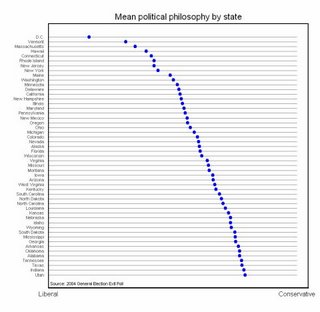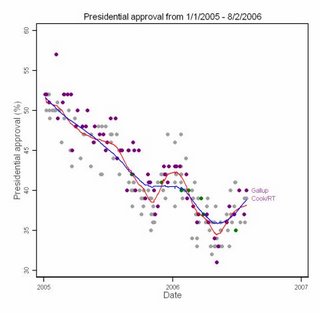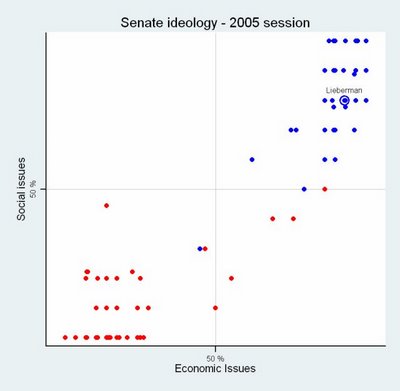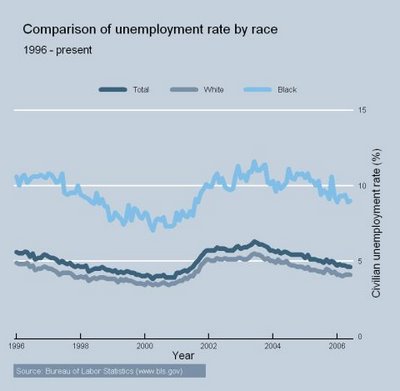To understand where Obama stands, you first have to know that, for 15 years, Democratic Party economics have been defined by a struggle that took place during the start of the Clinton administration. It was the battle of the Bobs. On one side was Clinton’s labor secretary and longtime friend, Bob Reich, who argued that the government should invest in roads, bridges, worker training and the like to stimulate the economy and help the middle class. On the other side was Bob Rubin, a former Goldman Sachs executive turned White House aide, who favored reducing the deficit to soothe the bond market, bring down interest rates and get the economy moving again. Clinton cast his lot with Rubin, and to this day the first question about any Democrat’s economic outlook is often where his heart lies, with Reich or Rubin, the left or the center, the government or the market.
Obama has obviously studied this debate, and early on during the flight to Chicago, he told me a story about Reich and Rubin. The previous week, Obama convened a discussion with a high-powered group of economists and chief executives. He was sitting at a conference table, with Rubin two seats to his left and Reich across from him. “One of the points I raised,” Obama told me, “is if you just use you, Bob, and you, Bob, as caricatures, the truth is, both of you acknowledge the world is more complicated.” By this, Obama didn’t simply mean that their views were more nuanced than many outsiders understood. He meant that both have come to acknowledge that the other man is, in part, correct. The two now occupy more similar ideological places than they did in 1993. The battle of the Bobs may not be completely over, but it has certainly been suspended.
Obama and "the two Bobs"
Race and Obama
Race has primarily played a factor to help Barack Obama. Not only with the African-American vote, which is fairly clear, I mean it's obviously clear, but with some white voters as well. I think that the idea that Hillary Clinton has suddenly gained a lot of support from racists, which we call "low information" voters, things like that, is just a myth. I mean, in fact, if you look over the exit polls, she's done much better in the votes since March, in fact, most of that support can be accounted for over the last three months, for greater support among upper and middle income white voters. It's not [these] mythic Appalachian, racist whites. That's a very small percentage of her pickup over Obama over the past three months. So I just don't buy it. I think certainly there's an element of that there, but I think that it's very, very small.
Obama and racial bias in exit polls
The argument
The pollster John Zogby sees some signs that white voters have grown more comfortable with black candidates. He offers the example of Harold Ford, the young, black Democratic congressman who narrowly lost his bid for one of Tennessee's US Senate seats in 2006. Traditionally, Zogby points out, black candidates do worse on Election Day than in pre-election polling because people tell pollsters they're more comfortable with black candidates than they actually are -- this phenomenon, the so-called Bradley Effect, is what some analysts thought helped Clinton last month in New Hampshire. But, Zogby points out, Ford actually did better in the final vote than in pre-election polling, suggesting a dissipation of the Bradley Effect.
The raw data

...

Communitarianism and the '08 election - an opening shot
Sarkozy
Hillary solid in Iowa
Convicted of terrorism but want to serve in the military? No problem!
Akaka (D-HI)
Alexander (R-TN)
Allard (R-CO)
Barrasso (R-WY)
Bayh (D-IN)
Bennett (R-UT)
Bond (R-MO)
Brownback (R-KS)
Bunning (R-KY)
Burr (R-NC)
Chambliss (R-GA)
Coburn (R-OK)
Cochran (R-MS)
Coleman (R-MN)
Corker (R-TN)
Cornyn (R-TX)
Craig (R-ID)
Crapo (R-ID)
DeMint (R-SC)
Dole (R-NC)
Domenici (R-NM)
Ensign (R-NV)
Enzi (R-WY)
Graham (R-SC)
Grassley (R-IA)
Gregg (R-NH)
Hagel (R-NE)
Hatch (R-UT)
Hutchison (R-TX)
Inhofe (R-OK)
Inouye (D-HI)
Isakson (R-GA)
Kohl (D-WI)
Kyl (R-AZ)
Levin (D-MI)
Lieberman (ID-CT)
Lott (R-MS)
Lugar (R-IN)
Martinez (R-FL)
McConnell (R-KY)
Murkowski (R-AK)
Nelson (D-NE)
Reed (D-RI)
Rockefeller (D-WV)
Sessions (R-AL)
Shelby (R-AL)
Specter (R-PA)
Stevens (R-AK)
Sununu (R-NH)
Thune (R-SD)
Vitter (R-LA)
Voinovich (R-OH)
Webb (D-VA)
Naomi Klein is an idiot
Needless to say, I would not hesitate to give any paper based on the idea that the Argentinian invasion of the Falklands was done in order to spur neoliberal reforms in Britain or one that suggested Tiananmen spurred China's turn to the market a failing mark. That such faulty logic could be extended to 500+ pages beggars belief.Unfortunately, Joseph Stiglitz, writing in The New York Times Sunday Magazine, was far too gentle:
Klein is not an academic and cannot be judged as one. There are many places in her book where she oversimplifies. But Friedman and the other shock therapists were also guilty of oversimplification, basing their belief in the perfection of market economies on models that assumed perfect information, perfect competition, perfect risk markets. Indeed, the case against these policies is even stronger than the one Klein makes. They were never based on solid empirical and theoretical foundations, and even as many of these policies were being pushed, academic economists were explaining the limitations of markets — for instance, whenever information is imperfect, which is to say always.So, what does this mean, that non-academics should be able to get basic facts wrong, and to spin absurd conspiracy theories, and get away scot free?
No, they (we) shouldn't.
Is Evan Bayh positioning himself for the VP spot?
By Craig Crawford | 8:48 AM; Sep. 25, 2007Sen. Evan Bayh’s timing in choosing yesterday to endorse Sen. Hillary Rodham Clinton’s presidential bid produced speculation about his chances to be the New York Democrat’s running mate at the precise moment when she would want to see such things discussed.
The Clinton camp is now seeking to lock down an image of invincibility in the Democratic race, and provoking buzz about her potential running mates well serves that goal.
Clinton has many reasons to put Bayh at the top of her list. The Indiana Democrat is telegenic, but without the fiery charisma that might upstage her. And he is popular in a red state where he once served as governor. Bayh and Clinton are colleagues on the Senate Armed Services Committee and it was notable that she took him along on her trip to Iraq and Afghanistan in January, making sure to include him in the press conferences after that journey.
And it surely helps his chances with her that he opted out of his own run for the presidency.
Contributing Editor Craig Crawford is a news analyst for NBC, MSNBC and CNBC. He can be reached at ccrawford@cq.com.
Dobson says he won't support Thompson
Dobson says he won't support Thompson
By ERIC GORSKI, AP Religion Writer Wed Sep 19, 8:55 PM ET
DENVER - James Dobson, one of the nation's most politically influential evangelical Christians, made it clear in a message to friends this week he will not support Republican presidential hopeful Fred Thompson.
In a private e-mail obtained Wednesday by The Associated Press, Dobson accuses the former Tennessee senator and actor of being weak on the campaign trail and wrong on issues dear to social conservatives.
Despite what Senator Clinton says...
Rudy Giuliani is dropping in the polls and is unable to defend his own support for George Bush's failed war. Instead of distorting Senator Clinton's record in the campaign's first attack ad, the Mayor should tell voters why he thinks sticking with the Bush Iraq strategy makes sense. The country wants change and while Hillary Clinton is focused ending the war, Mayor Giuliani is playing politics (bolding mine, obviously.)
Well, I don’t really care about the ad or the various candidates’ responses to it. What I do care about is the Senator’s assertion that Mayor Nine-eleven is dropping in the polls. This doesn’t seem to be the case, and I wanted to use her quote as an opportunity to post a graph of the latest poll numbers, along with using it as a demonstration of how Rasmussen’s results are distorting the aggregate poll numbers for several candidates, including those of Mayor Giuliani and Senator Thompson. To wit, look at the following two graphs:


The first is my standard national polling graph which shows all the poll results for the top five Republican candidates, along with a LOWESS trend line for each. The second is the same graph, but with the poll results from Rasmussen removed. The two graphs tell slightly different tales. In the first, Giuliani is dropping in the polls, while Thompson is charging. In the second, Thompson is still charging, but Giuliani is actually gaining a bit of support since his nadir around the beginning of summer. We can clearly see that Rasmussen is skewing the results to slightly favor Senator Thompson.
The following graph excludes all the other candidates, and highlights the Rasmussen poll results for Giuliani and Thompson (the trend line still excludes the Rasmussen data) to show how each candidate has polled with that organization.

It’s clear that, for whatever reason, Giuliani has polled lower in Rasmussen’s surveys, while Thompson has polled higher. I don’t really have an explanation for it but I’ll continue to look for one.
Meanwhile, Romney has big leads in Iowa and New Hampshire


I guess the big question is that, assuming the governor wins these two contests, will it be enough to knock out Giuliani? Will another, 'conservative', candidate win in South Carolina?










